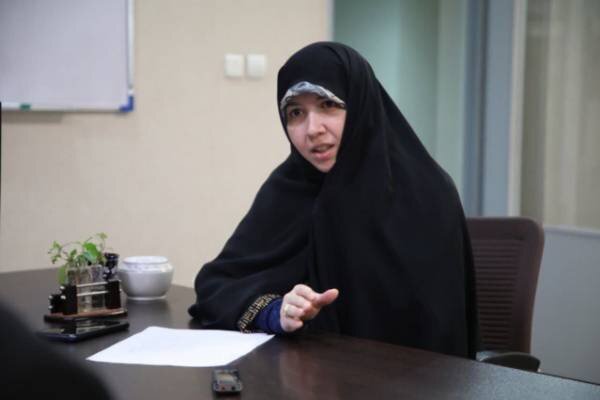Al-Aqsa Storm Sparks Global Wave of Solidarity with Palestinians

Mehr news Agency, International Desk, Elnaz Rahmatnejad: For decades, the Israeli regime portrayed itself as militarily superior with comprehensive intelligence dominance. The Al-Aqsa Storm operation shattered this image in a single morning. This storm irrevocably weakened the enemy’s power and humiliated Israel before the world.
On the second anniversary of the Al-Aqsa Storm operation, we spoke with Zeinab Asgharian, a senior regional affairs expert. The full interview follows:
Zeinab Asgharian said: “Two years after the war began, Gaza has become a symbol of global awakening. Although reports from the World Bank and European Union estimate damages to infrastructure and homes at over $50 billion, think tanks like RAND highlight that this humanitarian catastrophe has profoundly altered international public perception of the Palestinian issue.”
She added: “Analyses published by institutions such as Carnegie Endowment and European Council on Foreign Relations show that Gaza’s war has more than any other event in two decades raised global awareness about Israel’s occupation nature. Self-reliant media outlets, academic networks, and social movements across Europe and America now speak more openly about Palestinian rights than ever before. This shift has created a worldwide consciousness that politically and morally undermines Israeli legitimacy internationally. Meanwhile, palestinian resistance-particularly Hamas-despite unprecedented military pressure and destruction-has gained renewed legitimacy among segments of Arab public opinion and Muslim societies.”
The senior analyst continued: “According to MERIP think tank writings, this war transformed Hamas from merely a military actor into an emblem of resistance against aggression. today Gaza is not only a battlefield; it is where Israel’s defeat has stirred global awareness and reshaped resistance imagery within political memory worldwide. Any emerging new order in Palestine will be founded on this global awakening and redefinition of Palestinian political legitimacy.”
Asgharian noted: “The Resistance Axis is now undergoing strategic reconstruction and redefinition phases. The Century Foundation analysis suggests it cannot be viewed as defeated but rather as a flexible local actor network capable of regenerating after every setback.”
“Based on MERIP’s analysis,” she explained, “the Resistance Axis pursues three key priorities: first rebuilding deterrence capacity along with supply networks; second leveraging public diplomacy and legal tools to legitimize its narrative; third striving for political participation in Palestine’s future processes. Carnegie experts believe if these groups move beyond purely military logic towards engaging politically in upcoming frameworks, they could become decisive players shaping Palestine’s new order.”
Asgharian emphasized: “Al-Aqsa Storm undoubtedly generated an unprecedented wave of solidarity with Palestinians globally-from massive protests in London,Paris,New York to student movements and civil boycotts-the opposition voice against Israeli occupation policies extended far beyond Arab borders. According to reports by European Council on Foreign Relations, there is now greater divergence between Western governments’ stances toward Israel compared to their publics’ opinions.”
She recalled: “However at government levels no unified coherent front has yet materialized since strategic interests tied to security cooperation block forming a global coalition against Tel Aviv.Yet as Carnegie points out,” she continued “Israeli moral legitimacy within international frameworks suffered significant damage leading even traditional allies to soften their supportive rhetoric publicly.” She concluded that “Al-Aqsa Storm initiated what can be called a ‘global moral front’ opposing occupation-a front unofficial yet leaving lasting impact within public opinion arenas.”
“The West’s contradictory response to Gaza’s war highlights severe crisis signs within today’s world order,” Asgharian stressed.” A recent Carnegie report notes international institutions’ failure containing violence undermined liberal order credibility along with ‘worldwide human rights’ concepts Many analysts across European-Middle Eastern think tanks see this crisis exposing Western double standards fueling distrust throughout Global South.”
In conclusion she stated: “Conversely countries like China, russia ,and Iran have exploited this ethical void elevating roles as mediators championing Palestine cause Experts from Middle East Strategic Studies Center view this trend signaling transition toward multipolar order where legitimacy no longer derives mainly from Western military might but justice-driven popular narratives overall Gaza war tested Western moral standing alongside institutional effectiveness While results remain unsettled they indicate world moving away from old structures entering era marked by pluralism emphasis on redefining shared values.”


